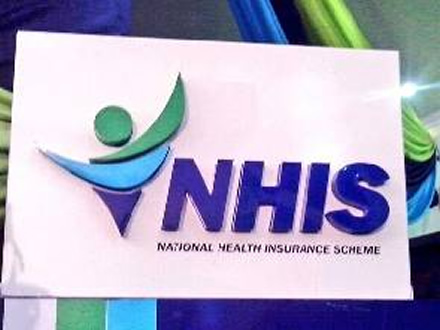Develop financial sustainability plan to resolve NHIS indebtedness – Send Ghana
 Send Ghana, a policy research and advocacy non-governmental organisation, has asked government to develop financial sustainability plan to manage the National Health Insurance Scheme (NHIS) to avert the vicious cycle of indebtedness to health providers.
Send Ghana, a policy research and advocacy non-governmental organisation, has asked government to develop financial sustainability plan to manage the National Health Insurance Scheme (NHIS) to avert the vicious cycle of indebtedness to health providers.
It said although government made some payment in 2017 there should be a plan to completely re-imbursement the health providers to ensure efficient health services to Ghanaians.
Madam Clara Osei-Boateng, the Director of Policy Advocacy Programme of Send Ghana, addressing the media on the Organisation’s 2018 Post Budget Analysis in Accra on Wednesday, said there should be a clear strategy by government to deal with the NHIS indebtedness because the 2018 budget had not indicated how government would mobilise resources to pay all the arrears to health providers.
The media encounter aims at explaining the budget to the public, identify policy gaps and assess whether the budget addressed citizens’ needs and priorities, as well as make inputs to help address the aspirations of Ghanaians, especially the vulnerable people in society.
The NGO analysed key thematic areas in the budget such as social services, agriculture, health, financial allocations to goods and services, education, water, sanitation and hygiene, social and children protection.
Analysing some allocations to the health sector, Madam Osei-Boateng said the 2018 budget saw the health sector witnessing 4.6 per cent increase in allocation in nominal terms but in real terms it declined by 0.1 per cent.
The budget allocations focused on compensation, goods and services and capital expenditure, she noted.
She said compensation took 60 per cent and 40 per cent went to goods and services (32 per cent) and capital expenditure (eight per cent).
Madam Osei-Boateng noted that, the non-availability of immunization vaccines at the various health facilities across the country increased infant mortality from 5.8 per in 2016 to 7.5 per cent in 2017.
She, however, said the budget failed to mention a strategy to deal with infant mortality in 2018 and suggested that sufficient funds should be made available to procure vaccines to reverse the negative trend.
She also asked government to resource Community-based Health Services, especially in rural areas, in order to bring health care to the door steps of the people.
On Water, Sanitation and Hygiene (WASH) budget, she said, there was 40 per cent decline in nominal terms in financial allocation in 2017, while the 2018 budget was reduced by 31 per cent, adding the WASH budget was 0.5 per cent in 2017, but it reduced by 0.3 per cent in the 2018 budget.
Madam Osei-Boateng said construction of water facilities, pipelines, sewage and drainage as well as basic household toilets were capital intensive projects, therefore the reduction of the WASH budget would negatively affect the programme.
She noted that, Ghana was the seventh in the world in terms of poor sanitation condition, but government had not mention how it would resolve sanitation issues in the 2018 budget.
“Government has not stated whether it established the National Sanitation Fund as promised in the 2017 budget and how much was realised so government should tell Ghanaians details on that proposal,” she queried.
Madam Osei-Boateng said government promised to construct 15,000 household toilets in Greater Accra Region, especially in deprived communities and 5,000 toilet facilities in rural communities in the North, Upper East and Upper West regions in 2017, but nothing was said about it in the 2018 budget.
“Now government has made another promise to construct 200,000 household toilets and 2,000 institutional latrines in the 2018 budget so we need to interrogate it to find out how it will raise funds to do it.
“So if government has not established the National Sanitation Fund then it should do it so that we can mobilise resources to manage sanitation issues in the country so that the nation will be less dependent on donor support,” she emphasised.
The NGO expressed its intention to forward the independent analysis it has done on the 2018 budget to Parliament and Government for consideration so that the budget would address the concerns of civil society organisations.
Source: GNA
